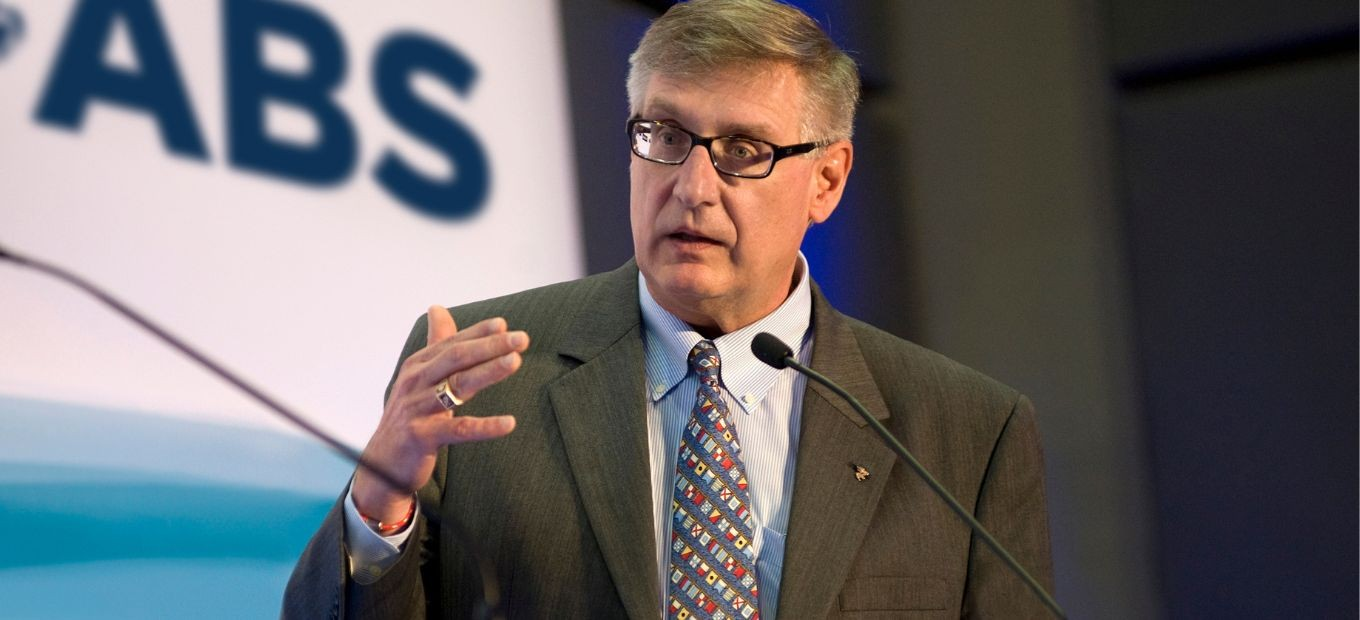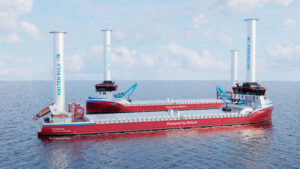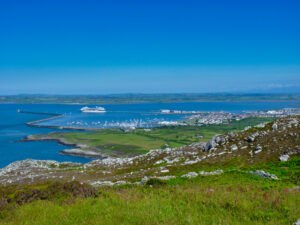At London International Shipping Week, the class society American Bureau of Shipping (ABS) chairman and CEO Christopher J. Wiernicki has called for the IMO to deliver a unified global framework to avoid the fragmentation and inefficiencies arising from a patchwork of regional regulation.
“This is important, but it is equally important we get it right,” he said, adding that “We want a global united IMO gameplan to work safely and effectively with all the elements in its playbook sequenced in the right way to eliminate as much uncertainty as possible and provide a smooth flight path for the industry.”
The IMO’s so-called “Net-Zero Framework” faces opposition from some top shipowners and the Trump administration. In a joint statement, US secretary of state Marco Rubio, secretary of commerce Howard Lutnick, secretary of energy Chris Wright, and secretary of transportation Sean Duffy criticized the IMO’s Net-Zero Framework, vowing to rally opposition to the adoption of the proposal by the IMO members ahead of a key vote in October.
The Trump Administration has rejected the proposed framework, calling it “a global carbon tax on Americans.”
Officials said President Donald Trump would not accept “any international environmental agreement that unduly or unfairly burdens the United States or harms the interests of the American people.”
They claim the framework would benefit China by requiring the use of expensive fuels unavailable at global scale.
The administration has warned that ships will have to pay fees for failing to meet unattainable fuel standards and emissions targets. They argue it would raise energy, transportation and leisure cruise costs.
In his message for the industry at the launch of the 2025 ABS Sustainability Outlook, Beyond the Horizon: Vision Meets Reality, Wiernicki said: “The industry needs a framework but we need one that marries ambition with reality.”
“The mechanics need to be thought through. Right now, we are not where we need to be. Emissions remain 121 percent above the 2008 baseline, compliance costs are compounding, and the signals shaping investment – regulation, fuel pricing, penalties, availability, scalability – are moving at different speeds. The IMO needs to take a timeout. We need to get this right.”
Launched at the ABS Sustainability Summit during London International Shipping Week, the seventh edition of the annual industry leading report shows that, despite progress on carbon intensity, shipping’s absolute emissions continue to climb.
“Maritime decarbonization is a three-part calculus: 70 percent fuel selection, 15 percent energy efficiency, and 15 percent performance optimization. That 30 percent beyond fuel is where software plays a pivotal role and, given the current scarcity of green and blue fuel variants globally, is where the most immediate and scalable gains can be achieved,” Wiernicki noted. “Getting closer to the 2030s, we need to protect the bridge, which is LNG with methane-slip controls and credible bio-/e-LNG pathways, to extend the runway, which is energy efficiency technologies and onboard carbon capture, to cut well to wake emissions and prepare the endgame: nuclear and zero carbon fuels when they are safe, insurable and investible at scale.”
The report also highlights the sharply increasing cost of compliance, modelling how a typical vessel trading within the EU could see daily operating costs increase from approximately $15,000 in 2028 to around $45,000 by 2035. According to the report, LNG is over-penalized in the early 2030s although it underpins blue fuels, keeps hard-to-abate segments compliant, and buys time for zero-carbon fuels, provided methane slip is addressed and pathways to bio-/e-LNG are opened.
In a keynote address to the Capital Link Conference at London International Shipping Week, the ABS chief has called for the IMO to recognize LNG as a legitimate transition fuel and acknowledge nuclear propulsion’s potential.
“Today, LNG Adoption, green fuel scaling and technology development are advancing within a regulatory landscape that is evolving but still requires further alignment with the industry to address safety, availability, affordability and the lack of supporting infrastructure.”
He mapped out a path forward for the industry.
“So, what should we do? Recognize LNG as a legitimate transition fuel and that it is itself a fuel in transition. Recognize that nuclear propulsion offers immense promise. The NZF should explicitly include nuclear in its roadmap, not as a footnote but as a pillar of long-term strategy.”



